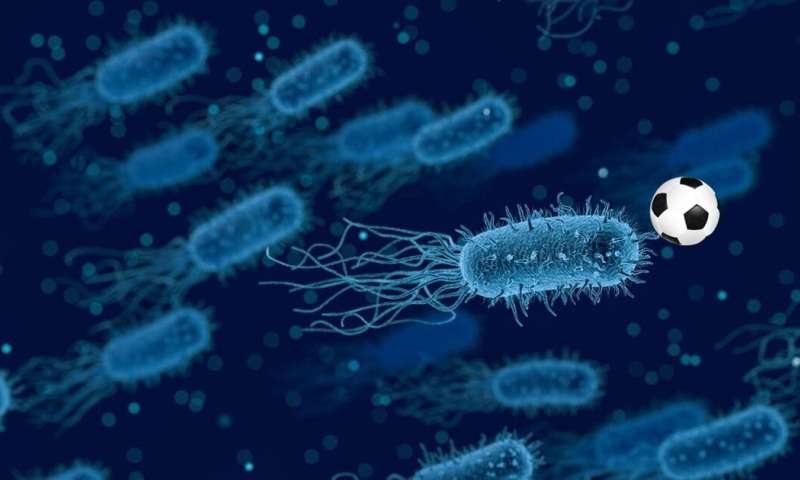Gut bacteria work in teams, new study finds—here’s why that’s important for your health

Our digestive tract hosts trillions of microbes, mainly bacteria, that help us digest food, make vitamins, strengthen the immune system, protect against germs, and produce molecules that affect many aspects of our health. Studying the microbial composition of the gut used to be extremely complicated. To identify them, they had to be cultured in the lab. And many could not even be grown there.
Recent advances in DNA sequencing have helped scientists to get around this problem. We can now identify microbes from their DNA, which can be done by sequencing DNA extracted from stool samples. We can now discover which microbes are inhabiting our gut, what functions they carry out, and how they interact with the surrounding environment and influence our metabolism and health.
While research has mainly focused on the health effects of single microbial species, our latest study reveals that microbial teamwork is actually much more important than a single species working alone.
Microbes work in groups to perform different functions, using what is available in the gut (which mainly comes from our diet) and producing molecules that then influence our metabolism.
By sequencing the microbial DNA we can identify those “fingerprints” that allow us to distinguish one species from another. We can also study their genes and predict the functions they perform.
Large twin study
Using a thousand twins from the TwinsUK cohort, we compared how people differ in their gut microbial species, and how they differ in terms of the functions carried out by bacterial teams.

While we share only 43% of gut microbial species, 82% of the microbial functions are exactly the same. Indeed, different microbes can perform similar functions.
We then measured hundreds of molecules in the gut and in the bloodstream—representative of microbial and human metabolism—and checked if their abundance was more strongly linked to the presence of particular microbial species or the microbial functions performed by microbial teams. Again, teamwork won, with microbial functions being more important than single microbes, as they showed a larger number of associations with the molecular composition of both gut and blood environments.
We found both gut species and microbial functions interact with almost all molecules measured in the gut, which is not surprising, as it’s where they live. More interesting was the fact that almost half of the molecules measured in blood also showed an association with the gut microbes, with microbial functions carried out by microbial teams showing eightfold more associations than individual species.
An extensive dialog goes on between the gut environment and our blood, and this explains why gut microbes are so strongly linked to our health. We estimate that 93% of this dialog involves microbial functions.
The gut microbial community plays an important role in human health, and its composition has been linked to many diseases—from metabolic to neurological. Fortunately, we can manipulate our gut microbial composition through diet, lifestyle, taking prebiotics and probiotics, and even through faecal transplants.
Source: Read Full Article


